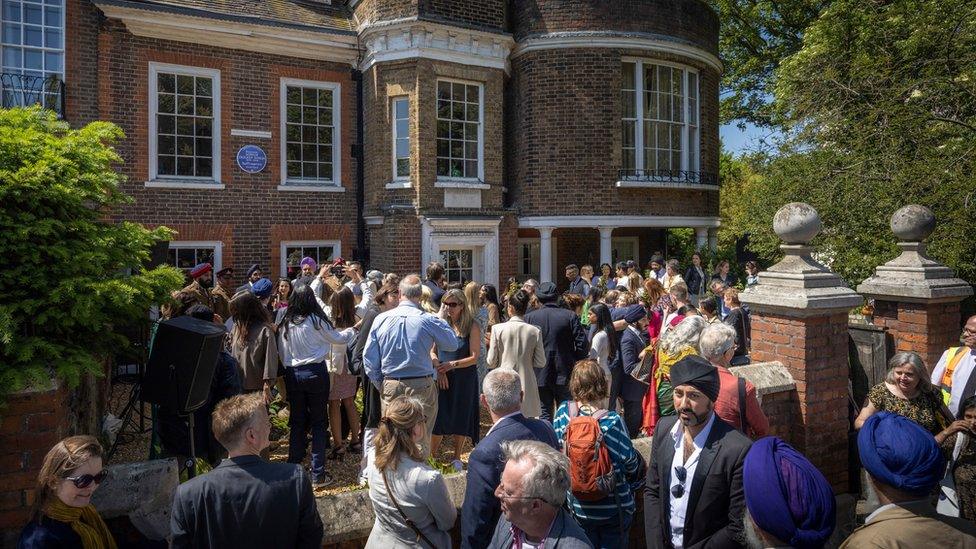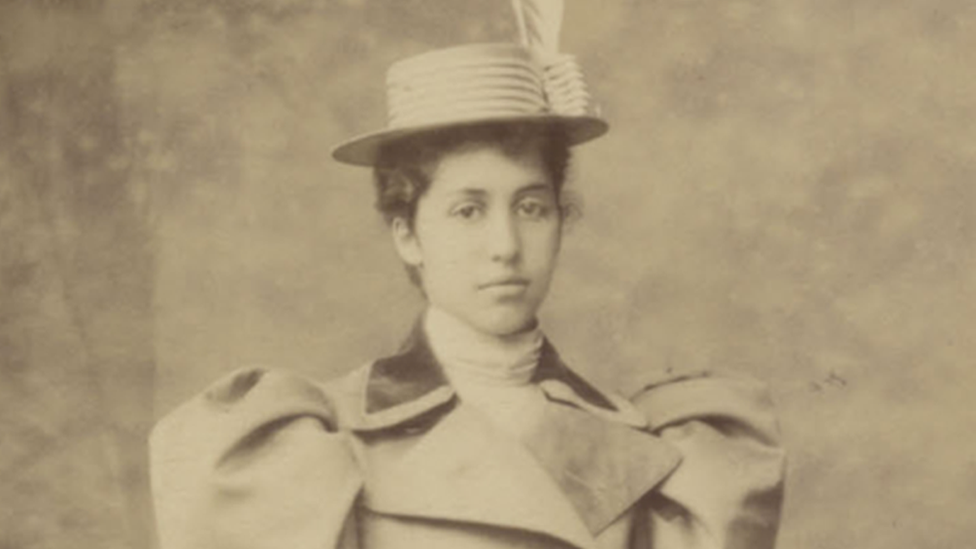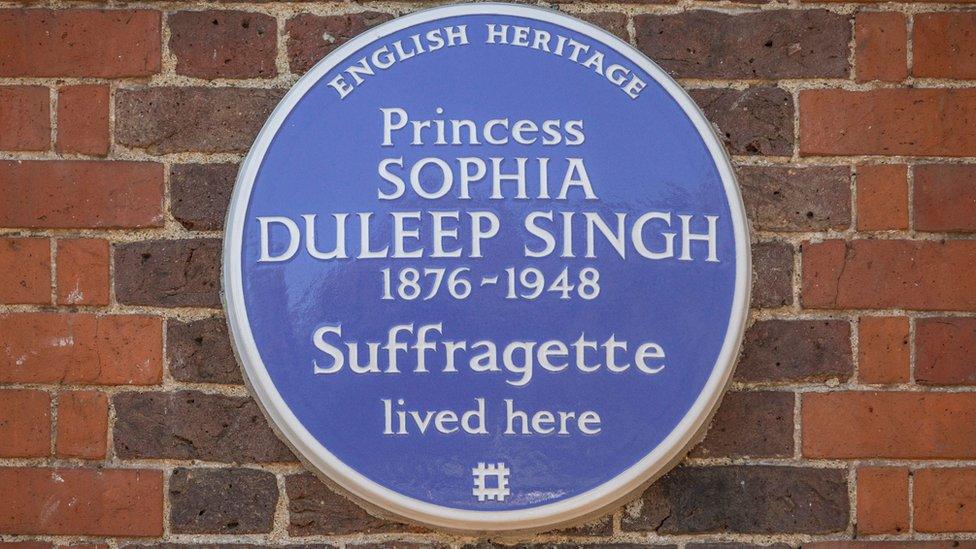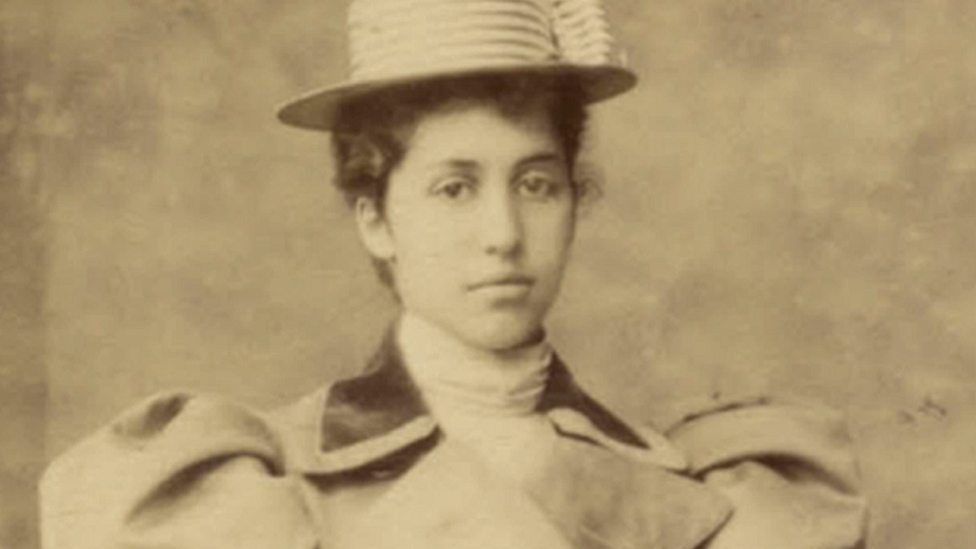Sophia Duleep Singh: Blue plaque honours suffragette Indian princess
- Published

Members of the Sikh community were among those to attend the unveiling of the plaque for Princess Sophia at her former home
A blue plaque honouring a suffragette Indian princess has been unveiled at her former home in south-west London.
Princess Sophia Duleep Singh was a member of the Women's Social and Political Union (WSPU), the militant group led by Emmeline Pankhurst.
She was a goddaughter of Queen Victoria and a Punjabi royal family member.
Among the guests at a ceremony on Friday at Sophia's former home, Faraday House in Hampton Court, were actress Meera Syal and Prof Helen Pankhurst.
Posters and protests

Princess Sophia Duleep Singh was a committed women's rights campaigner
Sophia grew up in Elveden on the Norfolk-Suffolk border before moving in 1896 to Faraday House, a grace-and-favour apartment owned by Queen Victoria.
As a member of the WSPU, she used her status and wealth to support women's suffrage.
From 1909 she was active in the WSPU Richmond and Kingston district branches and would sell copies of The Suffragette newspaper at her pitch outside Hampton Court Palace.
In 1911 Sophia threw a suffragette poster reading "Give women the vote!" at Prime Minister Herbert Asquith's car, at the state opening of Parliament.
'Bloody-minded women'
She was also part of action on "Black Friday" in 1910, external, when more than 300 suffragettes, including Dr Elizabeth Garrett Anderson and Pankhurst, marched to Parliament Square and demanded to see the prime minister.
The demonstration descended into violence when Asquith refused to see the suffragettes, with police beating the women who refused to leave. Sophia rescued one woman from an officer.

Princess Sophia was one of some 10,000 women who took part in the Women's War Work Procession in 1915, led by Emmeline Pankhurst
Beyond her enfranchisement campaigning, Sophia supported the Indian Women's Education Association in London, nursed Indian soldiers during World War One and housed evacuees during World War Two.
The journalist Anita Anand, author of a biography about the princess, said: "We owe Sophia such a debt of gratitude because without her courage and the courage of women like her, you can't take it for granted that we would have the right to vote in this country.
"She was one of those bloody-minded women who never do what they are supposed to do."

Follow BBC London on Facebook, external, Twitter , externaland Instagram, external. Send your story ideas to hellobbclondon@bbc.co.uk, external
- Published8 January 2022
